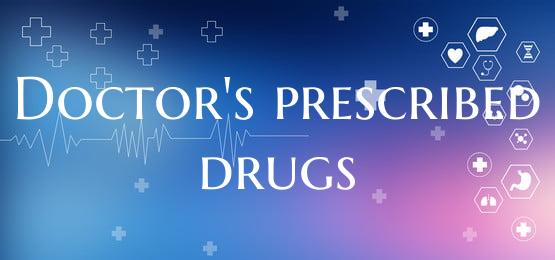
Doctor's prescribed drugs
When a doctor prescribes medication, it is essential for patients to follow their instructions diligently to ensure the effectiveness and safety of the treatment. Doctor's prescribed drugs are tailored for each individual's specific health condition and medical history. Understanding the importance of these medications can greatly contribute to successful treatment outcomes.
Here are key points to consider when it comes to doctor's prescribed drugs:
1. Personalized Treatment: Doctors consider various factors such as the patient's medical history, current health status, allergies, and potential drug interactions before prescribing medication. This personalized approach ensures that the prescribed drug is suitable for the individual's unique needs.
2. Dosage and Administration: It is crucial for patients to follow the prescribed dosage and administration instructions provided by the doctor. This includes the frequency of intake, timing, and whether the medication should be taken with food or on an empty stomach.
3. Possible Side Effects: Doctor's prescribed drugs may come with potential side effects. Patients should be aware of these side effects and report any unusual symptoms to their healthcare provider promptly. It is important not to discontinue medication without consulting the doctor, even if side effects occur.
4. Drug Interactions: Some medications can interact with others, affecting their effectiveness or causing adverse reactions. Inform your doctor about any other medications, supplements, or herbal remedies you are taking to avoid potential interactions.
5. Compliance and Follow-Up: Patients should adhere to the prescribed treatment plan and attend follow-up appointments as scheduled. This allows the doctor to monitor the progress of the treatment, adjust the medication if needed, and address any concerns or issues the patient may have.
6. Storage and Disposal: Store prescribed medications as directed, usually in a cool, dry place away from direct sunlight and out of reach of children. Dispose of expired or unused medication properly following local guidelines to prevent potential harm or misuse.
In conclusion, doctor's prescribed drugs play a vital role in treating various health conditions and improving patient outcomes when used correctly. By understanding the importance of following medication guidelines, being aware of possible side effects and interactions, and maintaining open communication with healthcare providers, patients can benefit from the intended therapeutic effects of the prescribed drugs. Remember, your doctor is there to help you navigate your treatment plan and address any concerns you may have regarding prescribed medications.